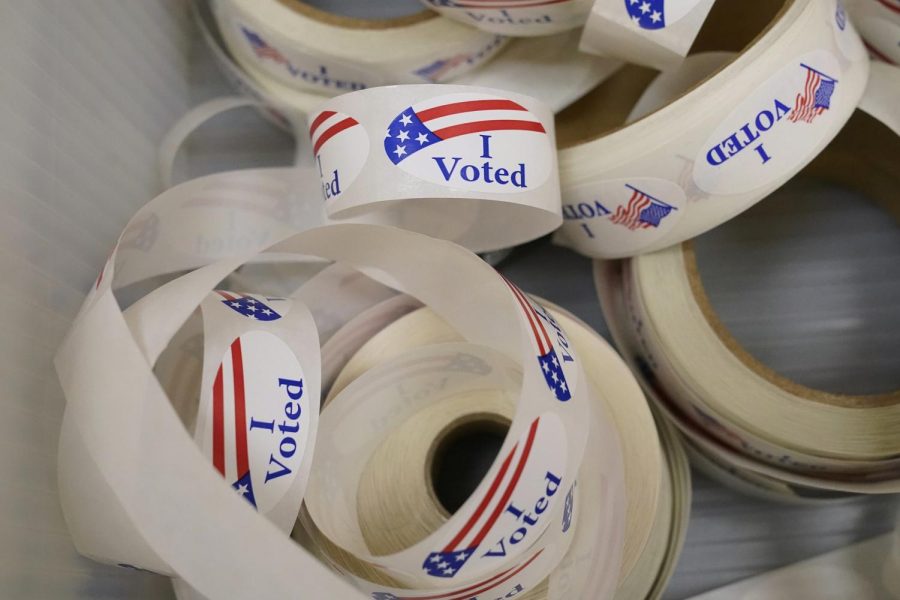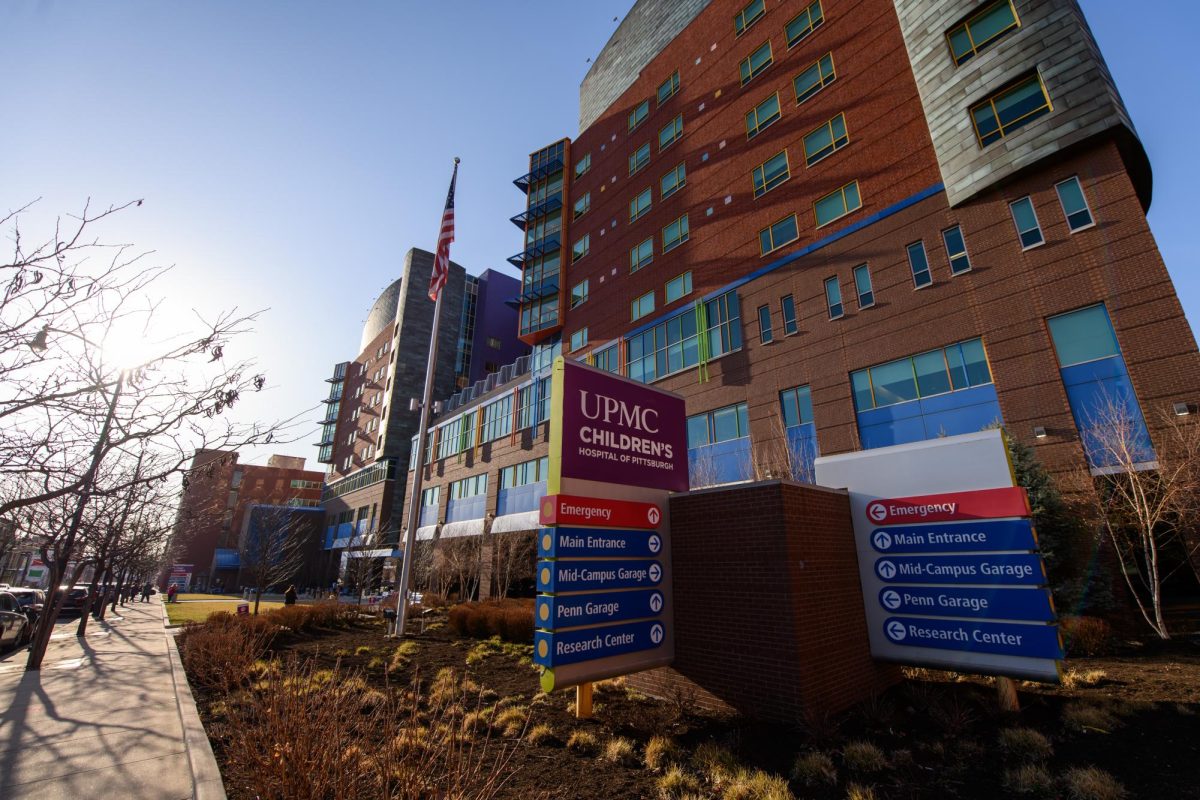‘A small thing we can do’: Students plan to vote for first time in midterms
“I Voted” stickers at an early voting location Thursday, June 23, 2022, in Oklahoma City.
October 27, 2022
Molly Guy, a sophomore psychology major, said she is planning to vote in-person on Nov. 8 in Pennsylvania for Josh Shapiro and John Fetterman. While she voted in the Maryland Democratic primaries over the summer, this will be her first time voting in a general election.
“I decided to vote in the first place because so much is at stake in this upcoming election, especially in PA,” Guy said. “I want to ensure that my voice is heard.”
Other first-time voters — such as first-year geology major Kathryn Barto and first-year computer science major Jade Shaibani — plan to vote because they want their voices to be heard.
Shaibani sent her ballot in by mail for Maryland and said she voted for Democrat Wes Moore in the gubernatorial race.
“I feel like it’s important for anyone who is 18 to vote,” Shaibani, a first-year computer science major, said. “We have power in numbers.”
According to Eugene DePasquale, former two-term auditor general of Pennsylvania and a part-time political science instructor at Pitt, Pennsylvania has always been a competitive political state, since both parties win elections in major offices. For example, while Democratic Governor Tom Wolf has held office since 2015, Republican Governor Tom Corbett held office from 2011-15, and Democratic Governor Edward Rendell held office from 2003-11. Also, Pennsylvania currently has one Democratic Senator, Bob Casey Jr. and one Republican Senator, Pat Toomey.
DePasquale, who also served as a three-term member of the Pennsylvania state General Assembly, said first time voters have the ability to impact close elections.
“Particularly when you look at the U.S. Senate race — and even all of the races — they are very close,” DePasquale said. “First-time voters sometimes can tip the balance. I think people should exercise their right to vote.”
According to Meri Long, an associate political science professor, most first time voters are disproportionately young, and younger voters tend to turn out at a lower rate.
However, Long, also an advisor in the political science department, said young people have increased their political participation in ways other than voting. Long said other forms of political participation could possibly encourage young people to vote.
“We have seen an increase in youth participation in protests in recent years, such as March for Our Lives and Black Lives Matter,” Long said. “So you see more participation in other forms of political participation and that might lead to more voting, or it might not. Young people have been particularly engaged by these things.”
Long said voting is a habit-forming behavior. There is often lower youth turnout in elections because younger voters do not have the habit, according to Long.
“People haven’t seen their peers voting, and they are not used to doing it yet because they haven’t done it themselves,” Long said. “Usually once people start voting, it can become a lifelong habit.”-
Michelle Star, a first-year computer science major, said she still is unsure if she plans to vote.
“I think you should vote,” Star said. “It’s a right to vote. It’s good to have an opinion.”
Star also said she doesn’t know if she will even be able to vote since she received her voter registration card with her name spelled incorrectly. According to Star, she doesn’t know who she will vote for if she does vote.
Long said one barrier that deters people from voting is the lack of knowledge about who is on the ballot.
“If people know about the political candidates, that will help younger voters turn out and will make them feel more like they can vote,” Long said.
Barto plans to vote by mail in Ohio and said she plans to do more research on the candidates before she casts her vote.
While she still has not received her mail in ballot, Barto said she registered to vote and requested a ballot as soon as she could since voting is a priority for her.
“It’s a rocky time,” Barto said. “I feel like it’s important. It’s a small thing we can do.”



